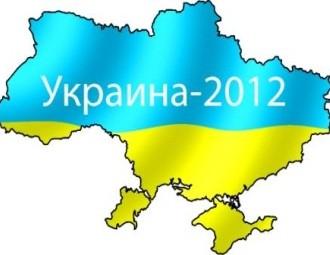Civil society organizations of Ukraine warn of unfair election practices

Ukraine’ civil society organizations state that many candidates from the country’s leading parties, running for the parliamentary election, do not meet democratic standards.
On the eve of the vote on October 28, Chesno ("Fair") civil movement checked 2,332 candidates from 63 of all 87 parties and groups campaigning for parliamentary seats, with the conclusion that the Viktor Yanukovich’s ruling Party of Regions had the biggest share of “unfair” candidates, EurActiv.com reports.
Out of the 327 Party of Regions’ candidates, 258 are considered unfair.
The Chesno organization noted 1,828 violations, evaluating based violations of rights and freedoms, involvement in corrupt schemes, trustworthiness of declared incomes and conflicts of interest, with some candidates falling under more than one category.
The UDAR party of Vitali Klitschko, former boxing champion, who’s party holds the second place behind the Party of Regions, has 60 branded unfair candidates out of 259 in total.
One more leading political force, having 296 candidates on the whole, the United Opposition of the former Prime Minister Yulia Tymoshenko’s Batkivschyna party and Arseniy Yatsenyuk's Front for Change, has had 154 ‘unfair’ candidates registered.
According to Olga Aivasovska of the Opora non-governmental organization, using the administrative resources to promote candidates has been the biggest challenge in the election campaign. Thus, 179 cases were registered in September when local authorities (region and regional state administration heads) endorsed candidates or political parties use staff and office resources for their profit. For example, officials have often accompanied candidates to meetings with voters and give speeches in their support, - the thing that is strictly prohibited. The most striking case took place with the Prime Minister’s son Oleksiy Azarov, running in Donetsk Oblast. He was accompanied and openly endorsed by town mayors and other officials.
Several humorous cases were reported also as apparent vote-buying, including cases when candidates gave prospective voters gifts of sparking wine, vodka or ice cream featuring their campaign portraits. Thus, food packages, bicycles and textbooks were distributed at the campaign’s launch, as head of the Committee of Voters of Ukraine Oleksand Chernenko reported, while with the approach of the vote, cash is being used.
Besides, there are cases of cash bribes that vary from 50 hryvnya to 500 hryvnya (€5 to €50) for a pledged vote, depending on the district.
In total, 3,800 international observers, representing 28 countries and 36 international organizations, have been registered for the election.
The ambassador of Ukraine to the EU, Kostiantyn Yelisieiev recently said that at least four parties could pass the 5% barrier and enter the parliament: the ruling Party of Regions; the United opposition (former Prime Minister Yulia Tymoshenko’s Batkivschyna and the Front for change of Arseniy Yatsenyuk); the UDAR party, who’s support has increased to 11-12%, according to the ambassador; the Communists.
-
03.01
-
07.10
-
22.09
-
17.08
-
12.08
-
30.09










































